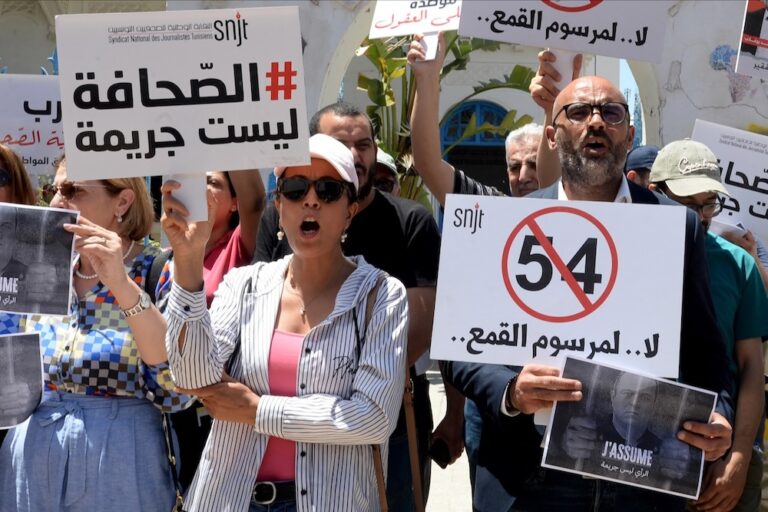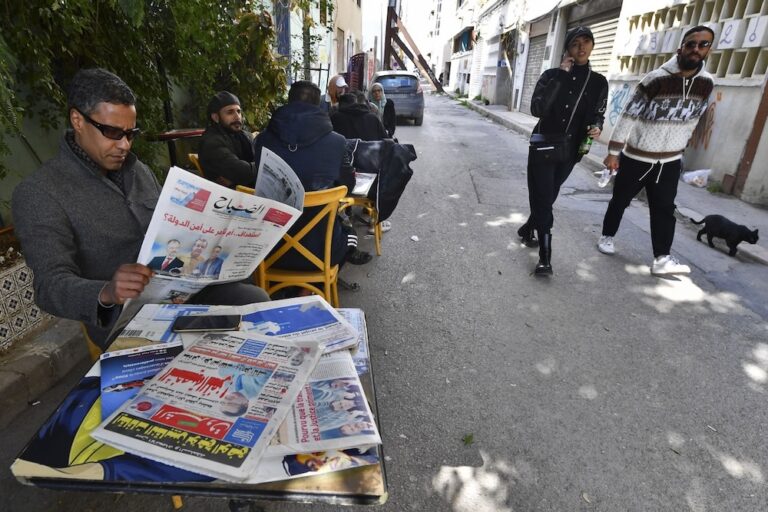(RSF/IFEX) – RSF has urged the European Union to cancel a 2.15 million euro (approx. US$2.73 million) funding programme for the Tunisian news media, which is officially described as being designed to “strengthen the press as part of improving ties between the media and civil society in Tunisia.” In a letter to European Commission President […]
(RSF/IFEX) – RSF has urged the European Union to cancel a 2.15 million euro (approx. US$2.73 million) funding programme for the Tunisian news media, which is officially described as being designed to “strengthen the press as part of improving ties between the media and civil society in Tunisia.”
In a letter to European Commission President Romano Prodi, RSF Secretary-General Robert Ménard said the organisation was amazed by “such political hypocrisy and cynicism,” which give the impression that “those who conceived the programme know nothing about the Tunisian media.”
All media outlets in Tunisia, including press, radio and television, are subject to the whim of President Ben Ali and follow his orders, the organisation stressed in its letter. A close watch is kept on the Internet. Hundreds of websites cannot be accessed from Internet cafes. The dozen or so Internet service providers are controlled by the government or its associates. Journalists who try to express dissenting views are constantly harassed, silenced, forced into exile or simply give up trying to work as journalists. Two journalists are currently languishing in prison.
“Anyone who knows anything about the fate of freedom under Ben Ali’s rule will be amused by this so-called ‘programme of support for the media’,” Ménard said in the letter. “But does this mean nothing can be done to help Tunisian journalists? Not at all. On the contrary, for years the European Union helped Reporters Without Borders come to the aid of Ben Ali’s victims, whose names – such as Taoufik Ben Brick, Sihem Bensedrine and Zouhair Yahyaoui – are as a result well known.”
“Brussels used to have the decency, or the courage, to distinguish between Tunisia and the Tunisian regime, between the country’s successes and the depravity of a ruling family that has the country in its grip,” Ménard said. “Will we soon have to talk in the past tense of Europe’s boldness, which made it the best defender of Tunisia’s democrats? Will we have to resign ourselves to seeing the EU fall in with Jacques Chirac and his defence of the ‘democrat’ Ben Ali? It looks as though we will,” Ménard added.
“The only honourable way out is to scrap this programme. No one will find fault with such a decision in these times of budget austerity. For once, saving money and moral imperatives coincide,” Ménard concluded.
RSF has previously proposed an alternate way for European bodies to help the Tunisian media, one that excludes the regime’s propaganda mouthpieces. This would be to provide assistance to the few newspapers and television stations that try to circulate alternative news about Tunisia from outside the country.


